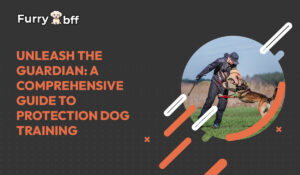You understand the intricacies of their anatomy and the care they require to lead a happy and healthy life. In this comprehensive guide, you share your wealth of knowledge to help dog owners ensure the well-being of their furry companions.
Providing Adequate Exercise
Problem: Small dogs have a lot of energy, and without adequate physical activity, they can become destructive and develop behavioral problems.
Solution: To keep your small dog healthy and happy, it’s crucial to provide them with daily exercise. This can include walks, playtime in the backyard, or visits to a dog park. The ideal amount of exercise for your dog will depend on their age, breed, and overall health, but a general guideline is to aim for at least 30 minutes of moderate activity every day.
Maintaining a Healthy Diet
Problem: Just like people, dogs can also struggle with weight gain and related health issues if they don’t eat a balanced diet.
Solution: It’s essential to feed your small dog a high-quality dog food that is appropriate for their age, weight, and activity level. Avoid feeding them table scraps and make sure they always have access to fresh water. You can also consider supplementing their diet with healthy snacks, like carrots or green beans.


Regular Check-Ups with the Vet
Problem: Small dogs can be susceptible to a variety of health problems, and early detection is key to effective treatment.
Solution: Regular check-ups with a veterinarian are essential to maintain your dog’s health. During these visits, the vet can assess your dog’s overall health, administer any necessary vaccinations, and catch any potential health issues early on. It’s recommended to take your dog to the vet at least once a year, but more frequent visits may be necessary depending on their age and health status.
Grooming and Hygiene
Problem: Small dogs, especially those with long hair, require regular grooming to maintain their coat and avoid matting and skin irritation.
Solution: To keep your small dog’s coat healthy and shiny, it’s important to groom them regularly. This can include brushing, bathing, and trimming their nails. You can also clean their ears and teeth regularly to prevent infections.
Addressing Behavioral Problems
Problem: Small dogs may exhibit behavioral problems such as separation anxiety, excessive barking, and destructive chewing, which can be stressful for both the dog and the owner.
Solution: Proper training and exercise can help address behavioral problems in small dogs. Positive reinforcement techniques, like reward-based training, are highly effective. You can also consider working with a professional dog trainer for more challenging issues.


Conclusion
In conclusion, by following the tips outlined in this comprehensive guide, you can ensure that your furry companion remains happy and healthy for years to come. Regular exercise, a balanced diet, regular check-ups with the vet, proper grooming, and addressing behavioral problems are all crucial aspects of small dog care. By taking the time to invest in your dog’s well-being, you can foster a lifelong bond with your furry best friend.









